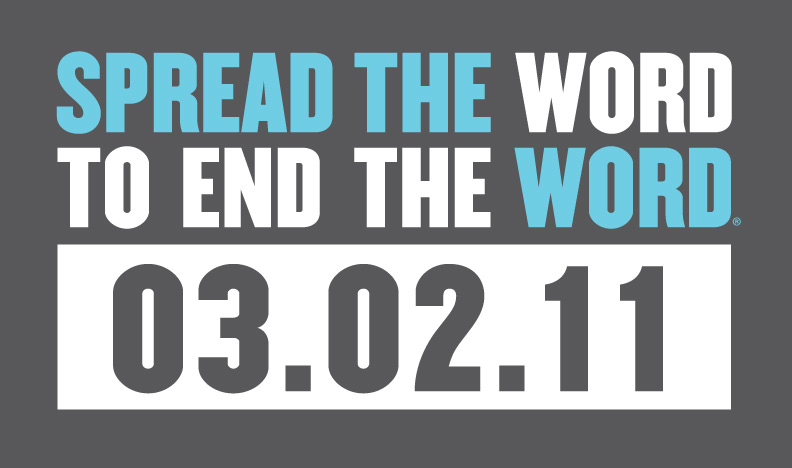
Does changing a word, reducing its usage, change the world? Does it change attitudes? Or do we use new words in place of old words to convey the same dismissive, derisive attitudes? If we rid the world of the word r*tard, will that be enough to get the intellectually disabled the acceptance and equality that is their right as fellow human beings?
Meanings, and the attitudes behind the meanings, matter. When young people today use that word so casually in their conversations (and boy do they use it!), do they mean harm? It's doubtful when they use it they're stopping to think about those with challenges; it's certainly obvious that they're not thinking of them and how that might make someone with an intellectual disability feel. No, it falls off the tongue carelessly with no thought. And the common usage has only increased over the years; any given day at the college, I'll hear it a handful of times as I pass through the common areas.
Do I stop them? Do I confront each student and gently explain that's hurtful? No, I don't, because I did, initially, when they used it directly in front of me, and it didn't help get them to use the word less. There's got to be a better way than directly addressing it.
Condemnation of individuals who use the word thoughtlessly is not helpful, either. It is a commonly used word, like moron, idiot, imbecile, and even those in the disability community who should be sensitive to language and how it's used, use those three words, even if they avoid the R word.
I'd tell you that my use of dumbass is better, morally superior, but it's not. The attitude behind those words, used so casually in conversation that even when we don't mean to, have a tendency to slip from our tongue without deliberate forethought, is the same. The words are meant to convey a specific cluster of attitudes, and those attitudes are clearly communicated when we use any of those words.
It's a dismissive attitude, one that instantly signals that the person it's being used against is or has done something stupid. It's a way of rendering them less, less than smart, less than. It's not nice, and even softening it, to say that even dumbasses have feelings, does not lessen the fact that the terms are meant to sting.
I could commit a logical fallacy, point to its common usage and say that makes it okay, but it doesn't, not if you're on the receiving end of that attitude. It's only okay if you're the one dishing it out (and that's because you're dishing it out).
I'm not sure there's a solution here; people do some spectacularly stupid things, even the smartest people. There ought to be a way to convey those failures of cognition without a derisive attitude that somehow still conveys the humanity, the value, and the validation of that humanity and value. I fear it's so much easier and so much more satisfying to just slip into the use of those words that convey that attitude than it is to painstakingly break down the claims being made, bit by singular, spectacular failing bit.
The problem is we're human, hypocrisy is inevitable, and lapses in theory of mind and the golden rule are going to happen.
I'm all for ending the use of the "R" word, but it's the attitude behind the word that has to be changed, and whether we use that particular word or not, I'm willing to bet that underlying attitude is one we all employ at one point or another.





Comments